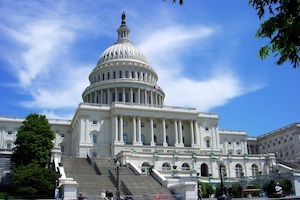U.S. Government Shutdown Enters Third Week as Senate Rejects Funding Bill for 12th Time

The U.S. federal government shutdown has entered its third week, with the political deadlock continuing to intensify. On the evening of the 22nd, the Senate voted on a temporary funding bill, but the proposal to reopen the government was rejected for the twelfth time, with 48 votes in favor and 50 against. As a result, about 800,000 federal employees nationwide remain furloughed without pay.
The bill would have temporarily kept the federal government running until mid-November, giving Congress more time to negotiate the annual budget. However, the current impasse stems from differing party demands: Republicans are pushing for a “clean” short-term bill that extends funding until November 21, while Democrats are insisting on simultaneously extending subsidies under the Affordable Care Act, leading to a stalemate.
The shutdown’s effects have now spread across multiple federal departments. Several national parks and museums have been temporarily closed, tax services and visa processing have been significantly delayed, and although some employees at the Transportation Security Administration (TSA) and Federal Aviation Administration (FAA) are required to continue working, morale is low due to the lack of pay. The U.S. Chamber of Commerce has warned that if the shutdown lasts more than a month, it will deal a substantial blow to tourism, aviation, and small businesses.
Analysts note that neither side appears willing to compromise, making a short-term breakthrough unlikely. If the congressional recess extends to November 5, the shutdown will surpass the 35-day record set during the 2018–2019 impasse, becoming the longest in the past decade.
The Washington-based think tank Brookings Institution forecasts that if the shutdown continues into November, it could reduce U.S. GDP growth by about 0.2 percentage points for the quarter and weaken market confidence. Most polls show public trust in Congress’s handling of the budget has fallen to a new low, with nearly 60% of respondents saying that *both parties* should be held responsible for the government shutdown.
- 62 reads
Human Rights
Fostering a More Humane World: The 28th Eurasian Economic Summi

Conscience, Hope, and Action: Keys to Global Peace and Sustainability

Ringing FOWPAL’s Peace Bell for the World:Nobel Peace Prize Laureates’ Visions and Actions

Protecting the World’s Cultural Diversity for a Sustainable Future

Puppet Show I International Friendship Day 2020

